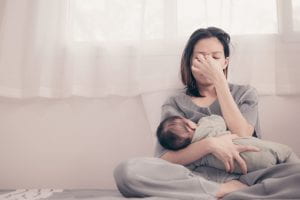 Approximately 1.2 million Americans live in certified nursing homes, and another 1 million live in assisted living facilities. It’s common for residents in these facilities to have roommates, 24/7 medical devices, and round-the-clock nursing care. Not surprisingly, people living in these environments frequently experience sleep disturbances. [Read more…]
Approximately 1.2 million Americans live in certified nursing homes, and another 1 million live in assisted living facilities. It’s common for residents in these facilities to have roommates, 24/7 medical devices, and round-the-clock nursing care. Not surprisingly, people living in these environments frequently experience sleep disturbances. [Read more…]
How to Improve Sleep Among Long-Term Care Residents
How Cultural Norms May Influence Sleep and Health
 Sleep is foundational to our health. A large body of data links poor sleep to heart disease, stroke, diabetes, and depression. There’s also evidence that unhealthy sleeping habits may lead to sexual dysfunction and that sleep quality is associated with mood. [Read more…]
Sleep is foundational to our health. A large body of data links poor sleep to heart disease, stroke, diabetes, and depression. There’s also evidence that unhealthy sleeping habits may lead to sexual dysfunction and that sleep quality is associated with mood. [Read more…]
For Better Sex, Get Your Sleep
 About one in three Americans do not get enough sleep every day, according to the U.S. Centers for Disease Control and Prevention. That’s a problem because a large body of research demonstrates that sleep is foundational to our health. [Read more…]
About one in three Americans do not get enough sleep every day, according to the U.S. Centers for Disease Control and Prevention. That’s a problem because a large body of research demonstrates that sleep is foundational to our health. [Read more…]
Researchers Develop a Test for Extreme Fatigue

Over centuries, the human body has developed a natural rhythm that uses biological and environmental factors to determine when to sleep and eat. But continued advances in technology—starting with the light bulb, all the way to on-demand entertainment—allow people to ignore these natural rhythms. Circumstances such as caring for an infant, working a night shift, or staying out late at a party can also disrupt regular sleep patterns. Researchers refer to these disruptions as “social jet lag.” [Read more…]
Does Inconsistent Sleep Lead to Heart Disease?

If you’ve ever cared for small children, worked a night shift, or stayed out late at a party, you know the feeling of going to bed much later than usual and sleeping in the next day. Sleep researchers call this phenomenon “social jet lag.” They have found it can lead to many negative consequences, including poor sleep quality, reduced cognitive performance, unhealthy eating patterns, depression, and anxiety.
How To Cope With The End of Daylight Saving Time
 In much of North America, it officially feels like fall. Temperatures and leaves are dropping, and the fall rituals of football games, Halloween, and pumpkin spice-flavored everything are in full swing.
In much of North America, it officially feels like fall. Temperatures and leaves are dropping, and the fall rituals of football games, Halloween, and pumpkin spice-flavored everything are in full swing.
All this fall goodness is accompanied by a scheduling shift. On Sunday, Nov. 6, most of North America will “fall back” to standard time, setting clocks back one hour for the end of daylight saving time. [Read more…]
How the Pandemic Has Affected Our Mental and Physical Health
 We’re more than one year into the global pandemic that has kept many Americans sequestered in their homes and taking precautions to prevent the spread of COVID-19 when they go out. Not surprisingly, these changes in how and when we interact with others has led to changes in our mental and physical health. Among those changes, emerging data show that many Americans have gained weight, are drinking more alcohol and are not sleeping well. [Read more…]
We’re more than one year into the global pandemic that has kept many Americans sequestered in their homes and taking precautions to prevent the spread of COVID-19 when they go out. Not surprisingly, these changes in how and when we interact with others has led to changes in our mental and physical health. Among those changes, emerging data show that many Americans have gained weight, are drinking more alcohol and are not sleeping well. [Read more…]


